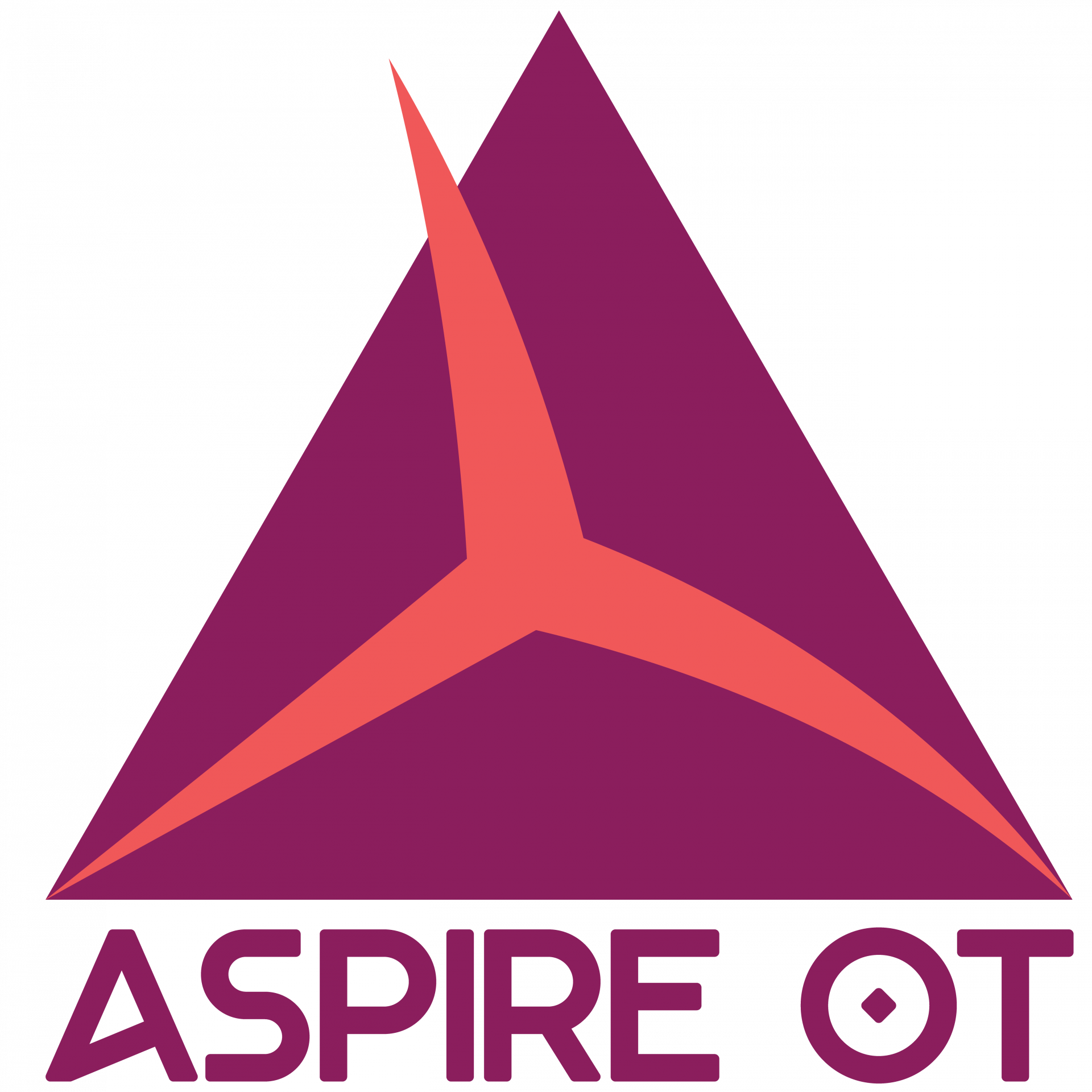Kimberly Breeden, MS, OTR/L Founding Partner
What I Wish I Could Say to New Grad Me: Reflections of an OT Practitioner at the Big "50"

I am not at all embarrassed to share with you that I turned 50 years old last week. I somehow had the impression that turning 50 was supposed to be terrible. As it approached, I did not have any dread; I just assumed it would all hit me on my actual birthday, you know because I was going to be on the downhill slide. Well my birthday arrived and it was an amazing day! I had time to reflect on my life, professionally and personally. I realized that I was extremely grateful and content. Now don't get me wrong, my life has not been easy, but life is never easy. I have made mistakes, experienced loss and tragedy and navigated many unexpected turns in my journey. I can actually say that even in the darkest times, I was able to see the beauty of it, though sometimes just fleeting glimmers.
1. "It's not about you".
2. "You are not expected to know everything".
As a new grad, I felt like I was supposed to be able to answer all of my clients questions about their condition (within my scope of practice ,of course). When I first started practicing, there was no options to search Google, you had to search AJOT, medical texts and textbooks for information. When a client asked me a question, I would try my best to answer it. I would later realize that my information was not always accurate.
3. "Just because your client likes you, it does not mean you are providing high quality or beneficial services"
Wow! During the first 18 years of my practice it was my assessment that if my clients liked or "loved" me that I provided excellent care. That may partially be true because "care" was my client's subjective interpretation. But looking back, I now realize that how much my clients liked me had nothing to do with the quality of occupational therapy services that I provided. During my early years of practice, I had a lot of clients who enjoyed my company, but I did not really provide the most evidence-informed care at that time.
4. "Focus on occupation as the goal AND the intervention. Meaningful engagement is what changes lives."
In the first half of my practice, I basically mimicked the treatments that I had been taught during my fieldworks placements and by my peers. My clients frequently questioned why I was having them do things like pegs, the arm bike and ROM arc, and I gave them the explanations that I had learned to give. The problem was that I was not really listening to what they were trying to tell me. I now realize my clients were trying to let me know that they did not see the relevance of these interventions to their needs or goals. Frankly, in a lot of cases those interventions were not the most relevant to the clients goals. I had the misconception at that time that it would not meet the requirements for medical necessity if I did not include some kind of therapeutic exercise or therapeutic activity in my treatment plan. I believed that if I addressed occupations such as ADLs, IADLs and health management every treatment it really was not a skilled service.
I am surrounded by young people (I have a lot of kids) and very aware that my body is aging. I don't look the same and I never will. I have however come to a conclusion: I would not take my 23 year old body back if it came with my 23 year old brain. No way! I will keep this fluffier, more wrinkled and dimpled and much more tired body and keep the knowledge that I have. I am more content in my life than I have ever been. I enjoy my OT practice more than I ever have and frankly I am a much better OT practitioner and can see that I am still improving every day. My clients benefit from my services more. They achieve better outcomes. I just wish I had provided this same care to my clients for my entire career.
I wanted to share the things that I would tell myself as a new grad if I could go back in time. Maybe it will help you. Though honestly, I am not sure I would have listened if someone told me these same things when I was younger.
1. "It's not about you".
This is probably the most important realization that I have come to in my OT practice. Nothing about my treatment is about me. Everything is about the client. My entire focus for the time I am with a client should be on them. Frankly, they really don't care about me. They did not come to the hospital, SNF, outpatient or agree to home health to meet me. They are there to address alterations in their ability to do things. They are there at maybe the most traumatic or vulnerable time in their life. They just want to live their life to the fullest and do the things that are meaningful to them.
This realization has changed my practice. I no longer get offended when someone is rude, doesn't tell me the truth or declines my services initially; because it is not about me. I do not get frustrated when someone does not follow my recommendations, because it is not about me. No more arguing with clients about what they should be doing or their misconceptions, because it is not about me. Trying to convince someone to make changes they are not ready to make is no longer on my agenda, because …. You guessed it, it is not about me. The great thing is that when I put the clients needs first, the relationship and connection that develops during our time together is priceless and I cherish it more now than I ever have. I've really seen this shift lead to much better outcomes with my clients as when I focus only on the client then they are actually more likely to make changes that will help them.
2. "You are not expected to know everything".
As a new grad, I felt like I was supposed to be able to answer all of my clients questions about their condition (within my scope of practice ,of course). When I first started practicing, there was no options to search Google, you had to search AJOT, medical texts and textbooks for information. When a client asked me a question, I would try my best to answer it. I would later realize that my information was not always accurate.
My stress level has decreased significantly since I have taken this expectation off of myself.
If I am not absolutely confident in answering a client's question, I now respond by saying, "I would like to get you the most accurate information, let me verify what I am thinking and I will get back with you later today". Many clients have told me that they really appreciate me taking the time to clarify information before I give it to them. I also feel that they have more confidence in me and my recommendations.
3. "Just because your client likes you, it does not mean you are providing high quality or beneficial services"
Wow! During the first 18 years of my practice it was my assessment that if my clients liked or "loved" me that I provided excellent care. That may partially be true because "care" was my client's subjective interpretation. But looking back, I now realize that how much my clients liked me had nothing to do with the quality of occupational therapy services that I provided. During my early years of practice, I had a lot of clients who enjoyed my company, but I did not really provide the most evidence-informed care at that time.
Over the last 10 years, I have worked to ensure that the assessments and interventions that I use are supported by research or best practice guidelines. There are so many interventions that were common practice 30 years ago that have now been discredited by the evidence. I now realize that the therapeutic relationship is vitally important to best addressing my client's needs, but it is no longer how I determine if my interventions are benefiting my client. For me, it is really important that I provide services that are the most up to date and proven to be best practice.
4. "Focus on occupation as the goal AND the intervention. Meaningful engagement is what changes lives."
In the first half of my practice, I basically mimicked the treatments that I had been taught during my fieldworks placements and by my peers. My clients frequently questioned why I was having them do things like pegs, the arm bike and ROM arc, and I gave them the explanations that I had learned to give. The problem was that I was not really listening to what they were trying to tell me. I now realize my clients were trying to let me know that they did not see the relevance of these interventions to their needs or goals. Frankly, in a lot of cases those interventions were not the most relevant to the clients goals. I had the misconception at that time that it would not meet the requirements for medical necessity if I did not include some kind of therapeutic exercise or therapeutic activity in my treatment plan. I believed that if I addressed occupations such as ADLs, IADLs and health management every treatment it really was not a skilled service.
In reflecting on my life in general, I am content because I feel that I do lots of things that have a purpose and are meaningful to me based on my faith, beliefs, values, and spirituality. I want my OT practice to be impactful, I want it to help people achieve meaning and purpose in their lives. I am not sure that the ROM arc and pegs achieved that the best way, if at all. I wish as a new practitioner that I had really understood how to implement what I was taught in school to my actual practice. If I could go back to my first 18 years of practice I would use the occupations that were the most meaningful to my client therapeutically to support their recovery or as the goal itself. I would have had family members bring fishing poles and tackle boxes, woodworking hand tools, crochet needles and yarn, favorite recipes, plants and cherished pets (even if it was outside) to therapy. I would have helped my clients do the things that gave them purpose and their identify. I would have made my treatment meaningful to them, not easy for me to complete my documentation. Yes I said it, there were times in my past that I chose an intervention that would allow me to complete my documentation or caseload easier. I am not proud of it and it is not the case now. Unfortunately, it was what I was taught and I even taught others to practice that way. New grad me did not question it as long as everyone around me was doing the same thing.
These are the first things I would say to my New Grad self if I could go back in time. Look for next week's blog for my final thoughts on what I wish I would have known 28 years ago.
Written by: Kimberly Breeden, MS, OTR/L
Founding Partner of Aspire OT
Founding Partner of Aspire OT
Light your OT fire with courses to improve your practice!
ASPIRE OT SUBSCRIPTION
The only CE subscription made just for OTs!
With Aspire OT's subscription, OTs OTAs and occupational therapy students have access to high-quality CEs that won't break the bank. With 22 hours of CE content, live monthly webinars, self-paced courses and more OT-focused content, our subscription was created JUST FOR OT professionals.

Write your awesome label here.
Coaching, JUST for OT Practitioners
Looking for inspiration in your own practice as an OT or OTA?
Are you a new grad OT or OTA and not sure where to start in your own practice?
Are you a new grad OT or OTA and not sure where to start in your own practice?
Aspire OT Coaching is here to help you. Let Kim and Niccole share their experiences in clinical and professional practice to help you achieve your OT goals.
Don't Miss A Thing!
Follow us on social media to stay up to date on all of our latest postings.

Featured Links
© Copyright Aspire OT 2022. All rights reserved.
Do not miss!
Cyber Monday Offer
Our Just for OT Subscription for only $59. Enter the coupon CYBER10 at checkout